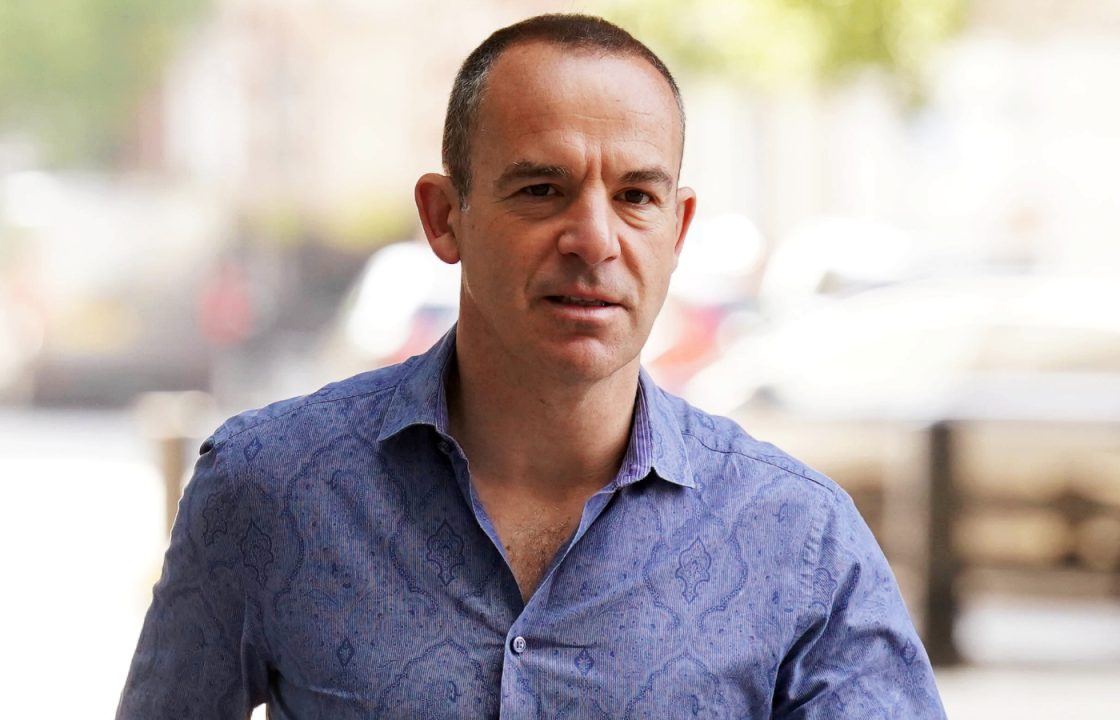Consumer champion Martin Lewis has said that a mortgage ticking time bomb that he previously warned about is now exploding.
The MoneySavingExpert.com founder told ITV’s Good Morning Britain that he had previously highlighted a “mortgage ticking time bomb”.
He continued: “And I’m afraid that time bomb is now exploding.”
Lewis said that if interest rates are going to be high over three or four years, people are going to have to readjust their finances.
He said he could not see a mortgage rescue package being brought in.
Lewis made his comments as figures from Moneyfactscompare.co.uk showed the average two-year fixed-rate residential mortgage rate on the market jumped to 6.07% on Tuesday, from 6.01% on Monday.
The average five-year fixed-rate deal is now 5.72%. This is up from an average rate of 5.67% on Monday.
The choice of mortgages has also shrunk since Monday, with 4,641 residential products available, down from 4,683 on Monday.
Lewis told Good Morning Britain how he had given his views during a mortgage summit held by Chancellor Jeremy Hunt last year.
He said: “I talked about banks increasing their margins, in other words they’re putting mortgages up and they’re not putting savings up by as much, so they make more money.
“And what we really need is soft or hard political pressure right now to say to them either you make things better for mortgage holders or you make them better for savers, or best, you make them better for both.”
He added: “But we’d got a lot of the banks sitting there and nodding.
“And many of the things I suggested they argued they were already doing, like you could change your term, you could take a payment holiday, you could reduce the amount you pay temporarily, you could switch to interest-only.
“But the big problem for me is they haven’t made that easy.
“And what I was suggesting in that meeting is, first of all those things need to be made reversible, so you know that if you can do it temporarily you can go back without a problem. That isn’t the situation.
“And second, they need to look at minimising the impact on people’s credit scores, because that puts people off taking a form of action, it scares them that they’re going to be disenfranchising themselves from other forms of borrowing for six years, but again, that hasn’t happened.
“So the ultimate result of that mortgage summit was a tiny bit more communication to borrowers.”
Lewis continued: “It’s about giving people flexible tools.
“And this is really important, because ultimately there is very little that we can do to protect people.
“If interest rates are going to be high over three or four years, people are going to have to readjust their finances.
“There is nothing else we can look at, they’re going to have to readjust their finances. And that’s going to be a nightmare.
“I can’t see this Government bringing in a mortgage rescue package, even if it wanted to do so.
“The whole point of putting interest rates up, let’s be absolutely blunt here, you put interest rates up to remove money from the economy.
“You do that by giving people less disposable income.
“So in a way, putting interest rates up is having the desired effect by squeezing people on mortgages.
“And what we saw last winter and will continue to see is energy bills being so high… is effectively taking money out, disposable income out of the lowest and low to middle earners.
“And now the mortgage squeeze is going to take it out of many mid and mid to high earners.
“We are taking money out of the system and that’s why we put up interest rates.
“I just think we need to think very carefully, do we really want to do that to people, do we really want to push the economy to contract that much?
“And remember too, and I mentioned this in the mortgage summit, the impact on mortgages has a big knock-on effect for many renters, who are seeing record proportions of their disposable income going on rents at the moment, that’s making that unaffordable.
“And we’re heading for trouble. And I think the whole point of what I called for last October and why we had the meeting in December was the idea was you have to come up with the plans and put some of the mitigation measures in place before you get to the crisis.
“Because when you do it, once you’re in crisis, it’s already too late. And we had that meeting and we didn’t do it.”
Speaking about mortgage rates, Lewis said: “There is no rule that they have to come down and I certainly think that for the foreseeable future the idea of them going back to where they were is not looking on the cards.
“And in fact the current prediction for interest rates is they’re going to continue to rise now, the UK base rate’s at 4.5%, going up to 5.5%, 5.75%.
“Now the fixed rates you’re seeing now are factoring those rises in, so they may come down a little bit.
“But if we’re going to have interest rates at 5% in the long run, we’re not going to see fixes come down.
“There is no crystal ball that says it has to come down. I’m not saying it won’t, I just don’t know.”
He said shifting to a variable deal for the short term in the hope that fixed rates might come down may be a strategy for some, but it is also a risk, if fixes continue to rise.
He added: “What I would suggest is anybody who is struggling, speak to a good mortgage broker, that’s their job, to talk you through what’s available.
“If you can’t pay, talk to your lender as soon as possible.”
Two-year gilt yields rose past 5% for first time since 2008 on Monday and hit a fresh 15-year high on Tuesday, of 5.08%.
The increases add to concerns about strong wage growth and sticky inflation, helping to fuel pressure on the Bank of England to raise the base rate further on Thursday. A base rate increase would immediately push up costs for homeowners on base rate tracker mortgages.
Levelling Up Secretary Michael Gove suggested that longer-term mortgages where rates are fixed in could give people certainty over their payments.
Gove told the Daily Telegraph: “One of the things that is right for levelling up over all is making sure we can develop the types of products that are elsewhere in the world – particularly countries like Canada – which are long-term, fixed-rate mortgages, so you don’t get the oscillation of how much you pay every two or five years, but you have certainty over as long as 25 years on what you pay.”
Follow STV News on WhatsApp
Scan the QR code on your mobile device for all the latest news from around the country


 PA Media
PA Media

























